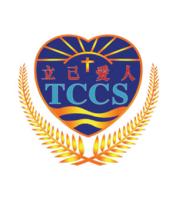| Language Policy |
The school strives to enhance students' biliterate and trilingual abilities. We adopt small-class teaching in English lessons and allocate extra resources to language teaching so as to create an English-rich campus.<br>To ensure a continuity in the use of English as the medium of instruction, subjects offered in English in Junior Secondary (JS) are still available in English in Senior Secondary (SS). The school also offers Chinese Language Curriculum for Non-Chinese Speaking Students to prepare non-Chinese speaking students for their further studies.<br> |
| Learning and Teaching Strategies |
1. To put emphasis on developing students’ generic skills, as well as promoting national education and values education in response to EDB’s ‘Learning to Learn 2+: Ongoing Curriculum Renewal’.<br>2. To promote student-centered learning through group-learning routines and to nurture students to be strong communicators, caring companions and competent learners.<br>3. To promote self-directed learning through reinforcing their habits of doing pre-lesson preparation and note-taking for more solid knowledge construction and consolidation. |
| School-based curriculum |
1. Electives: 2X and 3X. Students choose to study 2 or 3 electives based on their personal interests/abilities.<br> 2. Curriculum highlights: Junior Secondary elite classes allow more capable students to explore the subject matter in a broader and deeper scope.<br><br>(1) Questioning: to provoke thinking.<br>(2) Collaborative learning: to encourage cooperation and development of problem-solving skills.<br>(3) Thinking and expressing techniques: to promote structured learning as well as deeper and wider thinking.<br>(4) Self-management skills: to promote self-directed learning through engaging students in weekly goal-setting and evaluation exercises, pre-lesson preparation and note-taking.<br> |
| Approach to Catering for Learner Diversity |
A Learning Support Committee is in place, implementing plans to cater for students' individual differences. Teaching is done through cooperative learning method to foster students' development of their strengths. Some schemes like a Remedial and Enhancement Scheme, "Individual Education Plans" (IEP), etc. have been set up to facilitate students' whole person development. |
| Approach to Integrated Education |
The school adopts whole school participation model, sets up student support groups, and uses the Learning Support Grant to provide students with special educational needs with diversified support, such as speech therapy, literacy training groups and concentration training groups, etc. The school also arranges teachers to enroll in inclusive education courses to enhance the professional competence of teachers in the school. At the same time, the school also provides tiered coursework and examination adjustments for students in need to enhance the learning effectiveness of students with special educational needs. School-based educational psychologists also regularly evaluate students and invite parents to participate to jointly formulate individualized learning plans for students so that parents can master skills of effectively caring for and teaching their children.<br><br>In addition, the group also flexibly utilizes the Support Grant for Non-Chinese Speaking Students with Special Educational Needs to hire teaching assistants to support class enrollment, produce teaching materials, and assist in the implementation of life planning activities so that non-Chinese speaking students with special educational needs can receive appropriate support. |
| Education Support for Non-Chinese Speaking (NCS) Students |
|
| Home-School Co-operation |
1. To strengthen the relationship between parents and teachers;<br>2. To support the integration of schooling and parent education;<br>3. To assist in cultivating students’ virtues and values;<br>4. To support the school and to improve the facilities of the school, promoting the quality of teaching;<br>5. To promote collaboration between parents and school and to foster home-and-school-as-one spirit. |
| School Ethos |
Our school's mission originates from Jesus' love. We nurture in our students the Five Core Values of Catholic Education, namely Truth, Life, Family, Justice and Love. Students grow up in a loving environment. We understand and accept students' transgressions while creating a positive and supportive environment for students to cultivate honesty, justice and a culture of appreciating one another. |
| School Development Plan |
1. To strengthen primary-secondary collaboration in adopting the through-train curriculum (English Language, STEM and the incorporation of the Core Values of Catholic Education in classroom teaching).<br>2. To enhance the quality of learning and teaching, promote Self-regulated Learning, strengthen pre-lesson preparation and note-taking.<br>3. To incorporate the core values of Catholic Education in the curriculum and nurture the characteristics of ‘Tung Teens’. |
| Teacher Professional Training and Development |
Our school organises various seminars, workshops, peer class observation and staff development days and teachers' time to encourage teachers to further their studies. |
| Life-wide Learning |
Student Union Committee, Trust House, Contribute House, Cherish House, Shine House, Art Leader, Morning Assembly Group, Awards for Young People, Boys/Girl Basketball Team, TCCS Cheering Team, Chess Club, Peer Counseling Scheme, Secondary Choir, Community Youth Club, English Guides, Boys Football Team, Boys/Girl Handball Team, Angel Voices, Student Librarian, Social Issues Club, Table Tennis Team, Prefect Team, Science Club, Sweet House, Secondary Volleyball Team, Volunteer Group, Caffe Cuore, NCS Interactive Study Group, Dancing Club, Catechism Class, Swimming Team, The Civil Aid Service Cadet Corps, Catholic Society, Board Game Group, Environmental Group, Community Guided Tour, Life Sciences Club, Life Planning Ambassador, Athletic & Indoor Rowing Team, St. John Ambulance Brigade Youth Command, TCCS Photography Team, Fitness Club, Astronomy Club, Mathematics Club, Hand chime Team, TCCS Chamber Music, Green for Tung Teen, Girl Guides, Scout, Hong Kong Flat-guards, A Cappella Ensemble, Red Cross Youth Unit, STEM Team, STEM Club, Jesus' Club. |
